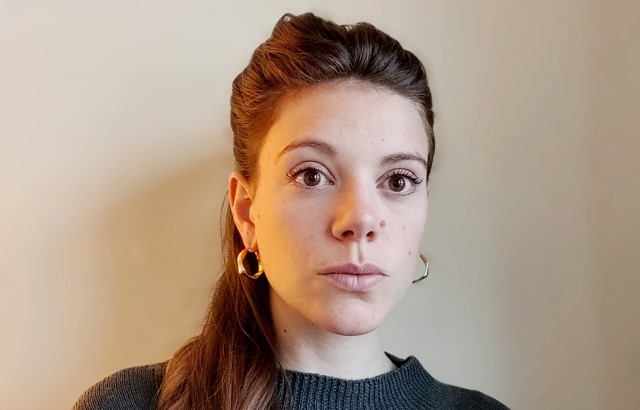

Saskia Blake, from London, grew up knowing she had mitral valve prolapse, but never thought it would lead to her needing surgery, until this became her reality at the age of 31.

“My journey started a long time ago. I found out I had mitral valve prolapse when I was 6 years old, but I had no idea it could lead to surgery at all. I went through my whole life going for these check-ups, but not really thinking I had a heart condition.”
After discovering hypertrophic cardiomyopathy (HCM) in her family, Saskia was screened for the condition. Doctors didn’t find signs of HCM, however, they did discover that Saskia had mitral valve prolapse. As a child, it was explained to Saskia as her ‘floppy heart valve’, as this is when the mitral valve bulges backwards like a parachute into the heart’s upper left chamber as it contracts.
During her regular check-up in 2021, doctors told Saskia that her condition had progressed and that she was going to need mitral valve repair surgery in the near future. “Hearing that was incredibly terrifying and completely overwhelming,” explains Saskia. Over the next year, Saskia’s condition continued to deteriorate until in 2022 doctors decided they needed to operate soon. From this point, Saskia waited 6 months for her surgery. “That was the longest, hardest, most stressful 6 months I’ve ever gone through,” says Saskia. “When you’re waiting for heart surgery, you don’t know how long it’s going to be. You can’t see the end in sight. I was getting sicker, feeling more tired, and I was told I had to stop exercising and was struggling to work because my heart couldn’t cope anymore.”
In November 2022, Saskia received a call from her surgeon saying there had been a last-minute cancellation and they could bring her in for surgery the following day. “By that point I was weirdly calm. I knew that it was going to mean the beginning of recovery, and I could move on,” says Saskia. “When I woke up, I knew exactly where I was and what had happened, and I just felt this huge sense of complete elation and relief. It was the best feeling ever.”
It’s now been nearly 6 months since Saskia’s surgery, and she’s back to working full-time and is exercising again. “This experience has taught me just how resilient I am.”
How has heart surgery evolved?
Throughout history, the boundaries of what can be accomplished through heart surgery have continuously been challenged and surpassed. In the 1800s, pioneering Prussian surgeon Theodor Billroth stated that “any surgeon who sutures the heart will fail”, only to be disproven a few years after he made this claim by Alexis Carrel and Ludwig Rehn, who were both surgeons who had used stiches to repair wounds to their patients’ hearts.
It wasn’t until 1953, when Dr Gibbon invented the first heart-lung machine that allowed the heart to be stopped and emptied of blood without causing damage to the rest of the body, that surgery to repair all kinds of defects on the outside and inside of the heart became possible.
From its early pioneers, the field of heart surgery has consistently pushed limits, defying previous assumptions of what was considered possible and achieved remarkable outcomes that were once unimaginable.
What to expect from heart surgery today
Now, tens of thousands of people have heart surgery in the UK every year. If you or a loved one are about to have heart surgery, it’s important to understand what it involves, what the risks and benefits are, and what you can expect to happen when you go into hospital. The lead up to surgery may involve lots of tests that can sometimes take months to complete, and this period can bring up a variety of emotions. Some may feel anxious, others elated, and many find the experience exhausting – these are all normal.
“One of the most important things is to speak to your cardiac nurses and surgeons about what to expect from your particular operation, and to make sure your treatment plan suits your needs,” states Mr Bil Kirmani, consultant cardiac surgeon at Liverpool Heart and Chest Hospital and researcher into valve and coronary conditions. If you have questions or concerns about heart and circulatory conditions, you can call our Heart Helpline to speak to one of our experienced cardiac nurses.
Today, heart surgery continues to evolve, with ongoing research and technological innovations aimed at improving outcomes, reducing invasiveness, and enhancing patient recovery. The collaboration between cardiac surgeons, cardiologists, and researchers worldwide has resulted in significant progress in the treatment of heart disease, making it possible to save and improve the lives of countless patients.
Want to hear more from Saskia Blake and Mr Bil Kirmani?


